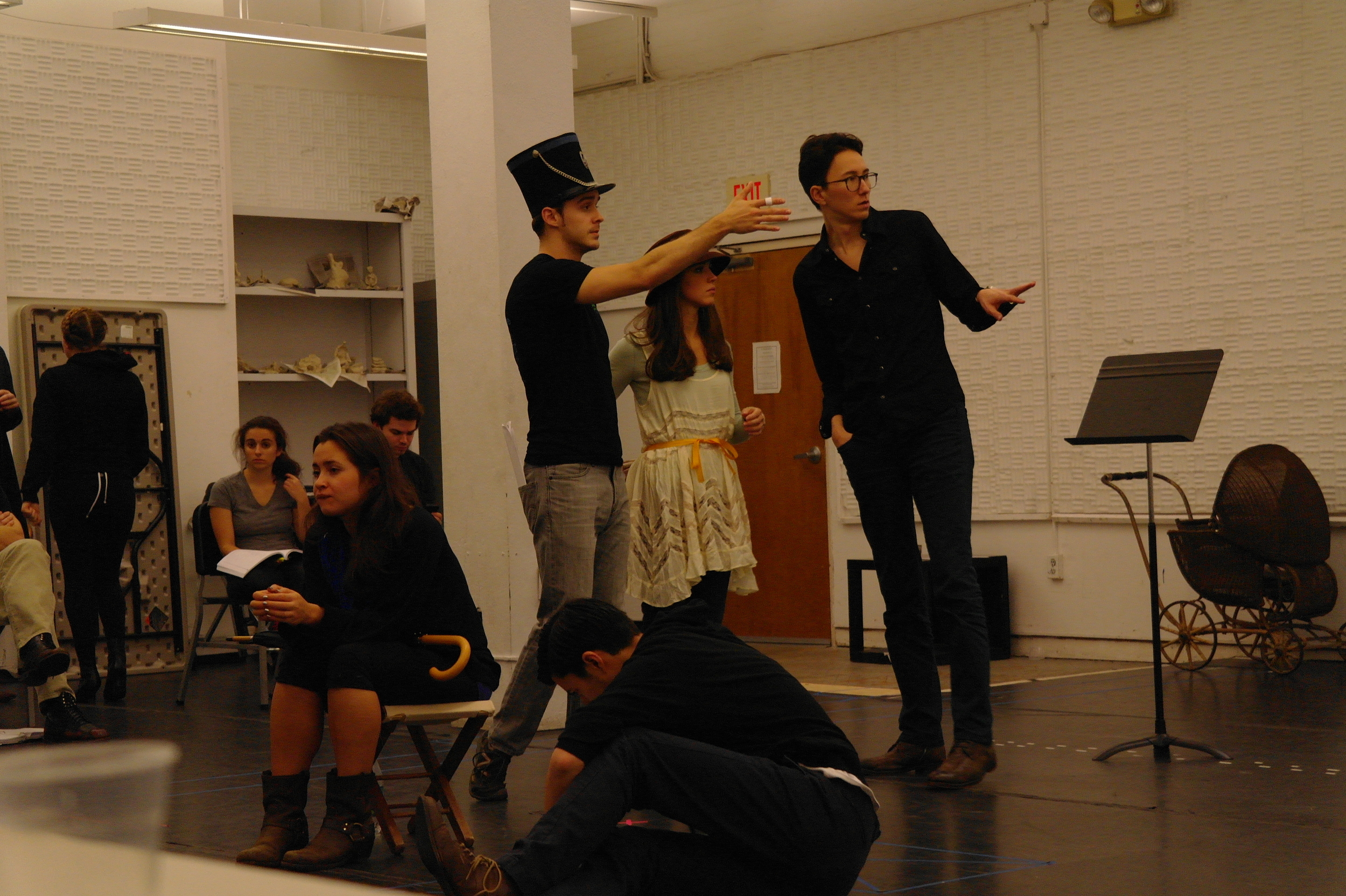Opening December 14th on the University Theater stage is a revival of Sunday in the Park with George, the Pulitzer-winning musical by Stephen Sondheim and James Lapine. The show will be the thesis production of Ethan Heard, third-year directing student at the Yale School of Drama and currently the Artistic Director of the Yale Cabaret. It’s by no means a regular thing for a YSD thesis show to be a big, popular Broadway musical, but, Heard says, he’s found there are many “closeted musical theater lovers” at the Drama School, and his fellow colleagues have rallied to the production, which has been in rehearsals since early November.

Heard says he favors “big-hearted shows that move me, nourish me, and teach me.” Sondheim “is a genius, and Sunday is one of the most important pieces of theater in the last fifty years.” Heard has seen three professional productions and sees the work as a fully satisfying, “wildy theatrical” project. When he proposed the musical for his directing project, Heard found that Victoria Nolan, Deputy Dean of YSD, also loves Sondheim and that, as Acting Instructor Ron Van Lieu points out, it’s not uncommon for YSD alums to find themselves in musicals. Indeed, Heard feels fortunate that the School currently boasts sufficient vocal talent to bring off the ambitious project, which features a cast of about fourteen, and that “pretty much every one has been in a musical.”
As Heard has learned in the rehearsals thus far, directing such a spectacle requires skills in “traffic control.” At an early rehearsal I attended, there was considerable satisfaction in watching the finale of Act One find its pace: the complex composition that is La Grande Jatte by Georges Seurat comes together to the tune of “Sunday.” It’s a moment that is both lyrical and epic in establishing the relation between two kinds of composition: the painterly kind which yields the tableaux we see forming before our eyes, a bourgeois slice of life from late nineteenth-century Paris, and the writerly kind that consists of the words and music of Sondheim and Lapine, giving expression to the ambiance surrounding the painting. Seeing students who are still discovering their parts find their places in the great oeuvre was fascinating.
The kind of acting Sunday requires is a departure from the kind of “kitchen-sink dramas” more common on the contemporary stage, Heard says. Musicals are stylized and, unlike works in the public domain, there are few liberties that can be taken with the material. The score makes its demands and finding room for interpretation might be said to be one of the challenges. For Heard, much of the dramatic value of a musical is in the “thrill of singing,” with the songs producing “tour de force moments” that, like speeches in Shakespeare, create a poetry that interprets the characters’ feelings, allowing them to be larger than life.
Heard believes that, from our current perspective, what Sunday says about making art is instructive. The play juxtaposes the artistic life in the 1880s—as emblematized by Georges Seurat, a loner who sacrificed love and a possible family for art—with the 1980s, where we see Seurat’s ficitional great-grandson, also called Georges, trying to cope with the demands of the self-contained art-world during one of its great “boom” periods. Heard suggests that he and his contemporaries in the Drama School can find much to identify with: “Artists between 25 and 32, like the two Georges in the play, are trying to make a mark by creating a legacy that will realize their vision and voice in the world. But there’s always the problem of balancing art and private life.”
Getting the balance right is not only a theme of the play, but a challenge of the production itself: balancing music and words, static tableaux with carefully choreographed action, the demands of art against the demands of romance, the obligations to personal vision and to collective concerns, and the desire to find an overarching aesthetic responsive and rigorous enough to celebrate the richness found in the twin demands of art and life. Heard and his very talented and capable company, including his musical director, Daniel Schlosberg, of the Yale Music School, are working on it, by George.
The show will run from December 14-20 at the Yale University Theatre, 222 York Street.
Photographs by Nicholas Hussong

